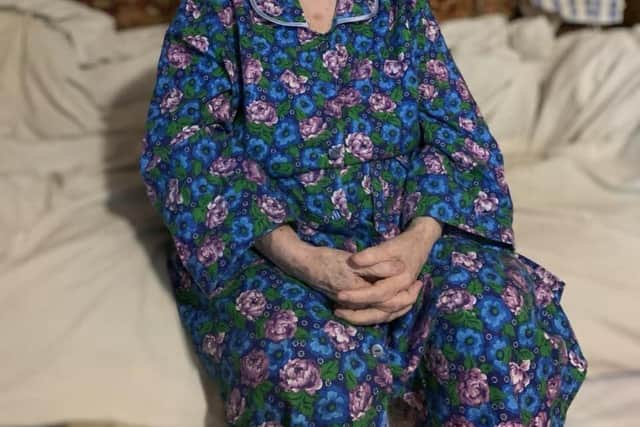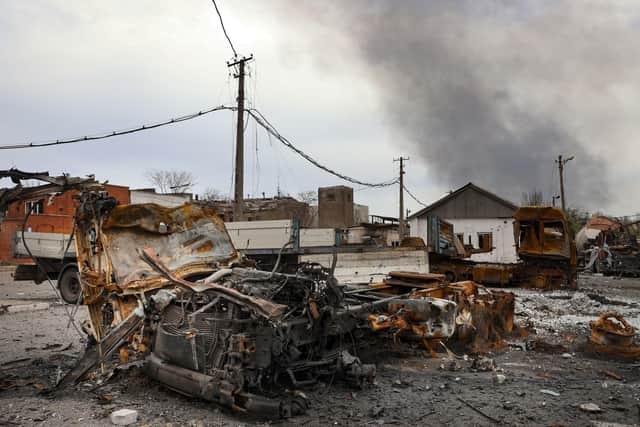Ukraine-Russia: Holocaust survivor, 91, dies in basement in besieged Mariupol
The Auschwitz Memorial announced the death of Vanda Semyonovna Obiedkova, who escaped Nazi persecution after hiding in a basement 81 years ago.
The Jewish organisation Chabad.org reported that her daughter, Larissa, shared the news after arriving with the rest of her family at a safe location, saying she died on April 4, pleading for water in a freezing basement.
Advertisement
Hide AdAdvertisement
Hide Ad“Mama didn’t deserve such a death,” Larissa told Chabad.org. “There was no water, no electricity, no heat—and it was unbearably cold. We were living like animals!”
She added: “Every time a bomb fell, the entire building shook. My mother kept saying she didn’t remember anything like this during the [Second World War].”
Ms Obiedkova was 10 years old when the Nazis occupied Mariupol and killed thousands of Jews in a single day, including her mother.
In October 1941, the Germans executed between 9,000 and 16,000 Jews in ditches on the outskirts of Mariupol, including Ms Obiedkova’s mother and her mother’s entire family. The little girl was later detained, but family friends came and convinced the Nazis that she was Greek. In 1941, her father, who was not Jewish, managed to get her checked into a hospital, where she safely remained until Mariupol was liberated in 1943.


Larissa, who buried her mother in a local park, before fleeing the city herself, said she could not return to her hometown.
“I’m so sorry for the people of Mariupol,” she said. “There’s no city, no work, no home—nothing. What is there to return to? For what? It’s all gone. Our parents wanted us to live better than they did, but here we are repeating their lives again.”
Ms Obiedkova recounted her experiences of the Holocaust in a video testimony to the USC Shoah Foundation in the 1990s.
“We had a VHS tape of her interview at home,” says Larissa, who said her mother spoke some Yiddish until the end. “But that’s all burned together with our home.”


Advertisement
Hide AdAdvertisement
Hide AdMs Obiedkova married in 1954, when Mariupol was known by the Soviet name of Zhdanov, and spent her entire life in the city. In recent years, she lived with Larissa.
“Mama loved Mariupol; she never wanted to leave,” she said.
Chabad-Lubawitch rabbi Mendel Cohen, who runs the only synagogue in the city, described her as a “kind, joyous woman”.
“The whole Mariupol has turned into a cemetery,” he told the organisation’s website.
“Vanda Semyonovna lived through unimaginable horrors. She was a kind, joyous woman, a special person who will forever remain in our hearts.”
Comments
Want to join the conversation? Please or to comment on this article.

